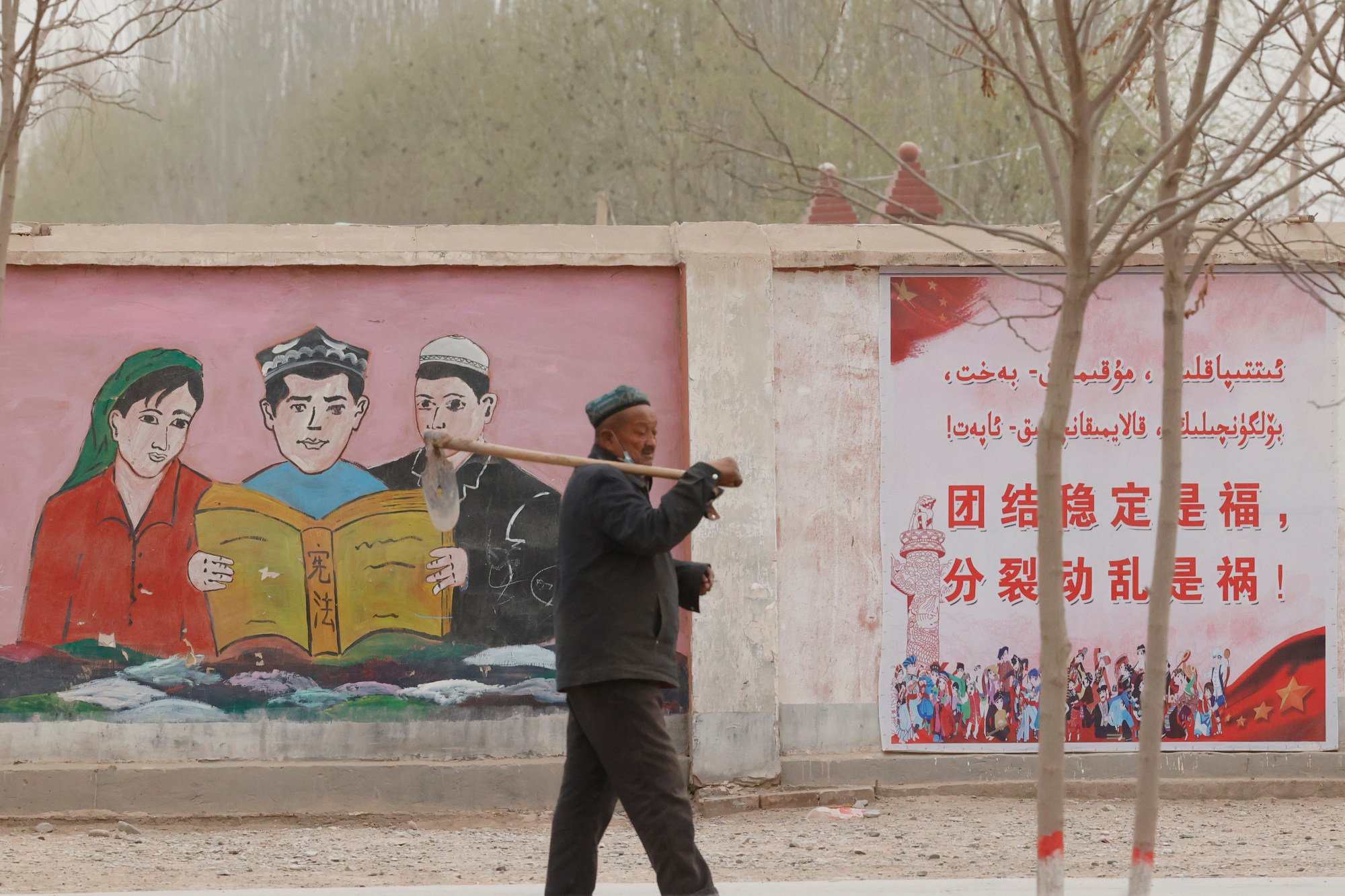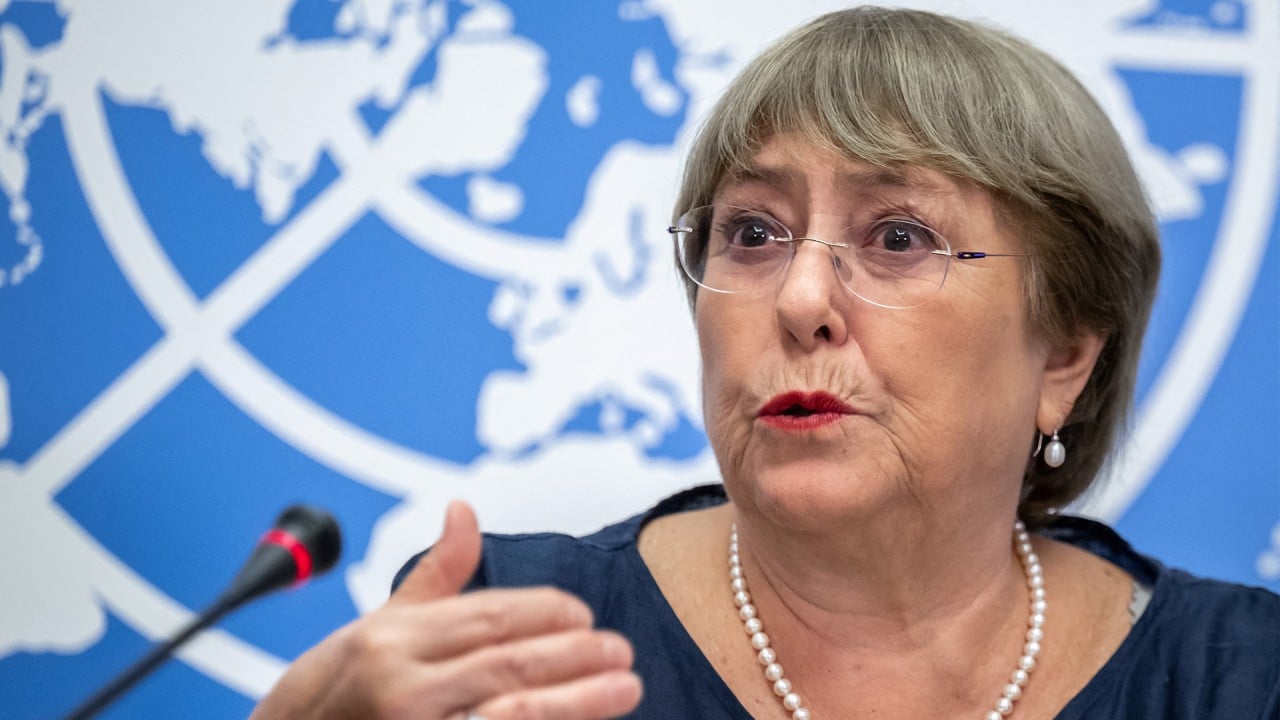
UN human rights chief urges China to address issues in Tibet, Xinjiang and Hong Kong
- Volker Turk, new United Nations High Commissioner for Human Rights, says his office’s recommendations ‘require concrete follow-up’
- Speech comes a day after the release of a fresh UN review of human rights in China
The new United Nations human rights chief voiced “grave concerns” on Tuesday over conditions in Tibet, Xinjiang and Hong Kong, urging Beijing to take “concrete steps” to address its recommendations for the regions.
Volker Turk, delivering his Global Update speech in Geneva, said that the Office of the United Nations High Commissioner for Human Rights (OHCHR) has “opened up channels of communication with a range of actors” in China on issues including “the protection of minorities” in Tibet and Xinjiang.
He reiterated the issues the office documented under his predecessor Michelle Bachelet last year – “notably large-scale arbitrary detentions and ongoing family separations” – saying that the OHCHR “has made important recommendations that require concrete follow-up”.
“We also have concerns about the severe restriction of civic space more generally, including the arbitrary detention of human rights defenders and lawyers; and the impact of the national security law in Hong Kong,” said Turk, an Austrian diplomat who succeeded Bachelet in October.
In the final moments of her tenure, Bachelet released a long-awaited report on human rights conditions in Xinjiang, accusing Chinese authorities of committing serious violations, which “may constitute crimes against humanity”.
‘Illegal and invalid’: China says UN Xinjiang report shuts door to teamwork
Beijing – which had sought to block the report’s publication – denied all charges, accusing the office of being politically motivated, and vowing to stop cooperating with it.
Turk’s remarks came a day after an independent body of experts assembled by the UN stoked fresh concern about human rights in China.
After extensive talks with Chinese diplomats and officials, the Committee on Economic, Social and Cultural Rights (CESCR) published a review on Monday that flagged “reports of the discriminatory character of severe, systematic, vast and undue restrictions on a wide range of economic, social and cultural human rights”.
The committee raised concerns over the suppression of the linguistic and cultural rights of minorities in China, including “the targeting of predominantly Uygur, Kazakh, Kyrgyz, Hui, Turkic-speaking peoples”.

It also cited “reports of the large-scale campaign to eradicate Tibetan culture and language, as well as the general undermining of the linguistic identity of ethnic minorities by the assimilation policy of the state party, known as sinicisation”.
Concerning Hong Kong, it recommended that authorities there “immediately provide all due process guarantees of human rights defenders, civil society actors, journalists, human rights defenders, lawyers working on human rights and others working to defend economic, social and cultural rights, including access to independent and effective legal representation at every stage of the proceedings”.
The Hong Kong government quickly lodged a “strong objection”, saying the report trafficked in “distorted narratives”.

“The committee selectively believed, and made sweeping statements based on certain false information and distorted narratives regardless of the truth, and made one-sided and flawed comments on the human rights situation in Hong Kong in the so-called concluding observations,” the government said in a statement.
Activists welcomed the report.
“The CESCR has provided yet more evidence highlighting the gravity of the situation for Uygur and Turkic people. This is the proof that China has failed to whitewash its genocidal policies at the UN,” said Dolkun Isa, president of the World Uygur Congress.
Last week, Chinese Foreign Minister Qin Gang addressed the human rights council by video link, questioning the universality of these rights and contending that each country should determine whether to recognise them.
China faces EU criticism over treatment of Uygurs as human rights talks resume
“The practices of lecturing and finger-pointing at other’s human rights while ignoring and competing to solve one’s own serious human rights problems should be rejected,” Qin said.
In his address on Tuesday, Turk also chastised parts of the West for their human rights conditions.
“People in the United Kingdom are currently experiencing a cost of living crisis that may result in the largest drop in living standards on record. Racial and ethnic minority groups are disproportionately affected,” he said.
In the United States, he said, “people of African descent are reportedly almost three times more likely to be killed by police than are ‘white’ people”.
He cited the “brutal death of Tyre Nichols in Memphis” earlier this year, a case which stood out “not just because of the severity of the violence caught on tape, but because it was followed by immediate action to prosecute the officers involved”.

Generally, he noted, “only a fraction of such cases lead to those responsible being brought to justice”.
Turk touched only briefly on the Russian invasion of Ukraine, focusing on the “civilian casualties and destruction of a shocking magnitude … and the war’s impact on fuel and food prices”.
He did not criticise Moscow for instigating the conflict, but said he would address the issue in more detail on March 31.


